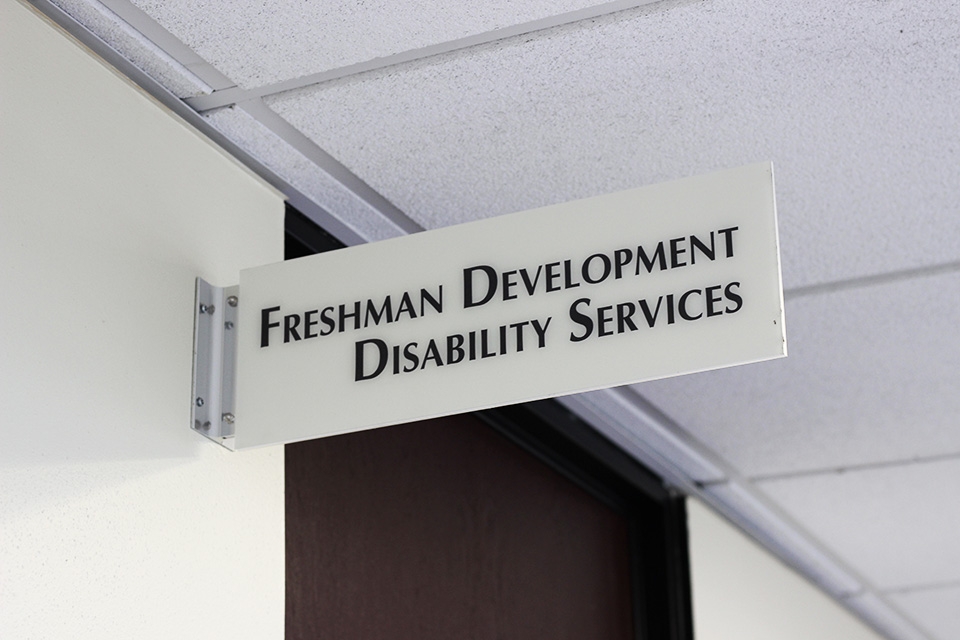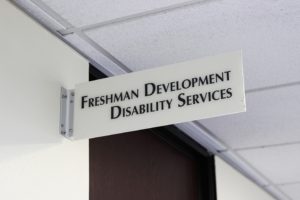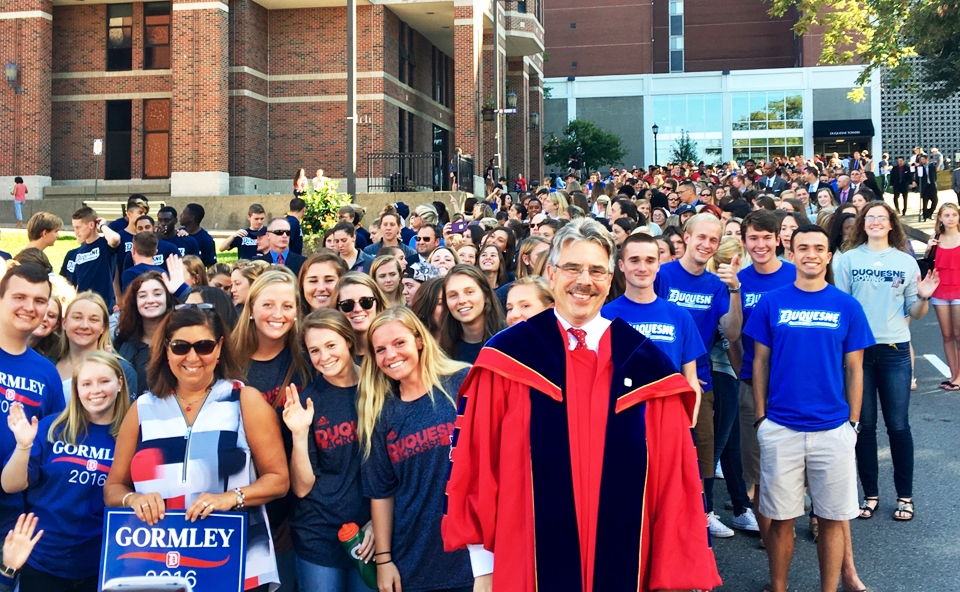

The Disability Services Office, located in Union 309, started the Career and Wellbeing Initiative to help sudents whose academic success has been affected by an aspect of their wellbeing, included financial and emotional.
Claudia Hardy | Staff Writer
11/15/2018
The university is made up of a diverse student body that includes people of all abilities who are working towards the same future goal: a career.
Thanks to the Jewish Family and Community Services Career Development Center (JFCS), students with physical, psychological and learning disabilities have the opportunity to get career advice specific to their needs right on campus.
The “Career and Wellbeing Initiative,” also originally known as “EmployABLE,” recognizes that job seekers with disabilities could potentially have struggles or challenges when searching for meaningful employment.
JFCS Career Counselor Kaitlyn Myers-Brooks has worked closely with the establishment of this program that is now available at the university.
“In 2017, JFCS reached out to local universities, working to address these challenges with students before they reached graduation,” Brooks said. “Duquesne recognized the need for this kind of support … and we are excited about our strong partnership moving forward.”
The Career and Wellbeing Initiative hopes to help students successfully learn about important aspects of the job search in relation to how their personal wellbeing intersects with their career goals.
“The more we can have conversations about the impact of personal wellbeing on future goals for employment,” Brooks said, “the more successful all Duquesne students will be.”
The program was established in 2017 when JFCS began working with Duquesne by providing training to staff on topics such as mental health and the job search, disability disclosure and career accommodations. As of September 2018, there are now regular career counselors on campus who are providing one-on-one career counseling and workshops for students.
Brooks noted that this program is not limited to students with a formal diagnosis, but is also available to those who have found that their academic success and career have been impacted by several aspects of their emotional, financial and physical wellbeing.
A common piece of advice that Brooks and her team give to students is the importance of learning about yourself.
“… giving yourself time for self-assessment is possibly the most important step in the entire career process,” Brooks noted. “You will discover not only what kinds of jobs align with your interests and skills but also the strengths that will help you reach your career goals.”
In addition to helpful career advice, students also have the advantage of accessing this program for free, thanks to funding from the United Way of Southwest Pennsylvania.
When compared to other similar programs at other universities, Brooks noted that the Career and Wellbeing Initiative stands out due to the importance of collaboration.
“Our career counselors, who all have backgrounds in clinical social work or clinical mental health, are working with four unique student services at Duquesne: the Center for Career Development, Disability Services, the Center for Student Wellbeing and the Office of Military and Veteran Students,” Brooks said.
In addition to collaboration, the career counselors look at each student as an individual and work with students to build a job search plan that meets their specific needs.
“Our program has helped over 1,000 individuals with disabilities find meaningful careers that match their skills and education,” Brooks noted. “Since launching the program at Duquesne University and Point Park University, we have seen about 50 students and conducted trainings for over 100 professors and staff members.”
The team is made up of 14 career counselors that work in the main office in Squirrel Hill, and a career counselor that serves on-site at each campus.
“I am excited to be serving as the Duquesne program’s on-campus career counselor,” Brooks said. “I am available to meet with students on Wednesdays.”
The team hopes to see attendance with this program increase in time and that students will take advantage of this service, whether it is through individual counseling or by attending the various workshops.
“We hope that the discussion of disability and student wellbeing becomes a normalized part of the conversation around career planning,” Brooks said. “We believe this will help ensure that students have the support they need to succeed during their time at Duquesne and beyond.”
For students interested in participating in this program, please contact Duquesne’s Center for Career Development at 412-396-6644 and ask to meet with someone to discuss Career and Wellbeing. This program is also open to alumni, who can either meet with a career counselor on site at Duquesne, or contact JFCS Career Development Center at 412-422-5627 to meet with a counselor in the main office or one of the nine regional sites throughout the city.



